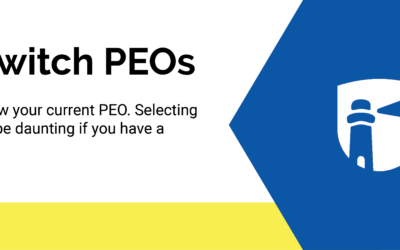Taxes, when you have employees
Once you have at least one person working for your business, you’re an employer. Being an employer comes with a wide range of responsibilities, including withholding, depositing and paying employment taxes. How can you make sure you’re fulfilling all your tax duties to avoid getting hit with fines and fees?
First, make sure to mark your calendar with key dates. The IRS has an Employment Tax Due Dates page with information on what you need to do and when you need to do it. Notably, you have to file returns four times a year, and at the end of the year, prepare and file Form W-2, Wage and Tax Statement, to report wages, tips and other compensation paid to employees. Each employee needs a copy. You will use Form W-3, Transmittal of Wage and Tax Statements to transmit Form W-2 to the Social Security Administration.
Employers generally must withhold income tax from employees’ wages. To figure out how much tax to withhold, you will need to use the employee’s Form W-4, the appropriate method and the appropriate withholding table described in Publication 15-T, Federal Income Tax Withholding Methods. You must then deposit your withholdings. The requirements for depositing vary based on your business and the amount you withhold.
Other key responsibilities
Employers also have to withhold Social Security and Medicare taxes from employees’ wages and make sure they submit the matching amounts. (Something else to budget for!) To figure out how much tax to withhold, use the employee’s Form W-4 and the methods described in Publication 15, Employer’s Tax Guide and Publication 15-A, Employer’s Supplemental Tax Guide. You must deposit the taxes you withhold. You can find the detailed requirements for depositing on the IRS.gov website.
The employee tax rate for Social Security is 6.2%. Employers are also responsible for withholding the 0.9% Additional Medicare Tax from an employee’s wages and compensation that exceeds a threshold amount based on the employee’s filing status. You are required to begin withholding the Additional Medicare Tax in the pay period in which you pay wages and compensation in excess of the threshold amount to an employee. There is no employer match for the Additional Medicare Tax.
Federal Unemployment Tax Act
Employers report and pay Federal Unemployment Tax Act (FUTA) tax separately from federal income tax and Social Security and Medicare taxes. You pay FUTA tax only from your own funds. Employees don’t pay this tax or have it withheld from their pay. Again, refer to Publication 15 and Publication 15-A for more information on FUTA tax.
This is just the beginning of an employer’s responsibilities. You are likely subject to state withholding rules as well. It’s essential that employers be on top of the general rules and any annual rate changes. Understanding these tax issues is important, since you bear the responsibility of fulfilling your tax obligations related to your employees. It’s important to send out payments on time to avoid penalties and late fees. Be sure to work closely with financial professionals to make sure you stay compliant.
Copyright 2024
Why Atlantic Payroll Partners
The biggest payroll companies probably won’t have time for your business. It’s that simple, you’ll be a number. At Atlantic Payroll Partners, you’ll be the opposite. We’ll know more than your name; we’ll know the names of your children and their birthday’s as well. We will know you.
We’ve been helping Florida business by managing their payroll and providing workers' compensation quotes for ten years. We help keep payroll cost affordable by provided transparent PEO payroll quotes that allow you to plan your budget accordingly. Like the big payroll companies, you can manage your payroll and payroll timekeeping with us, while reaping the benefits of PEO risk management.
Thinking about payroll outsourcing can be scary. Make sure you know what to expect from payroll outsourcing providers; to make the best decision for your business. In addition to offering payroll, and workers' comp quote we offer: Human Resource consultations, Accounting services, and benefits such as, 401ks and Healthcare plans.
Thinking about living life on edge? What happens if you don’t pay your payroll taxes? We’re breaking down 5 ways that the IRS makes you pay your payroll taxes. The Internal Revenue Service aggressively collects delinquent payroll taxes, and it has the authority to do just about anything to collect them. Here are five of the most aggressive tactics the agency uses:
Shut you down.
The IRS can lock your doors and shut down your business until you pay, without even getting a court order. It can also contact your customers, notify them that you’re a delinquent taxpayer and instruct them to send payments on their accounts to the IRS instead of to you.
Raise your borrowing costs.
If the IRS puts a lien on your business, your lending risk dramatically increases. Imagine, you were to file bankruptcy with an IRS lien, the IRS gets paid first, before any other creditor gets any money. If you have factoring agreements, your lender might cancel your contract because it becomes a secondary creditor behind the IRS.
Penalize you multiple ways.
The IRS assesses more than one penalty when you don’t pay your payroll taxes. If you don’t file, you’re assessed a “failure to file” penalty. When you don’t deposit the money within three days, you’re assessed a “failure to deposit” penalty and a “failure to pay” penalty. If you haven’t paid your payroll taxes 16 days after they were due, you now owe an additional 33 percent of your tax bill in penalties, but that’s just the beginning.
You can very easily double your tax bill with cascading penalties. Suppose you:
- Missed a $5,000 deposit for Week 1
- You make the Week 2 and Week 3 payments on time.
First, you’re assessed penalties for Week 1. When you pay Week 2, it’s applied to the Week 1 shortfall and then you’re assessed penalties for Week 2.
The same thing happens with Week 3 and your penalties cascade until you make up the past-due amount.
Try to put you in jail.
It’s a federal crime not to pay your payroll taxes. It’s also a federal crime to borrow money from the trust and spend it on general business expenses.
The IRS can send your case to its criminal investigations division and to the Justice Department for criminal prosecution, particularly if it believes you willfully and knowingly violated the law. You can be liable for fines and you can go to prison.
Seize your personal assets.
You’ve probably protected your personal assets from claims made against the company through a limited liability company, a limited partnership, a corporation or another organizational structure. Guess what?
There is no liability protection from the IRS. You’re personally responsible for the payroll taxes your company owes, and the IRS can seize your personal assets to collect them.
If you have a second signer on your payroll checks, they’re also personally responsible for the delinquent taxes and the IRS can seize their personal property as well.
If you fall behind on your payroll taxes, seek advice from experts who know the law, are familiar with the IRS’s collections tactics and know the right options you should pursue.
For example, an installment agreement is usually preferable to an offer in compromise, because the IRS rejects most offers in compromise.
Tax laws and tax rules are constantly being updated and interpreted. This article contains general information, so please discuss your individual situation with a trusted tax adviser before making tax decisions.
Copyright 2024
Why Atlantic Payroll Partners
The biggest payroll companies probably won’t have time for your business. It’s that simple, you’ll be a number. At Atlantic Payroll Partners, you’ll be the opposite. We’ll know more than your name; we’ll know the names of your children and their birthday’s as well. We will know you.
We’ve been helping Florida business by managing their payroll and providing workers' compensation quotes for ten years. We help keep payroll cost affordable by provided transparent PEO payroll quotes that allow you to plan your budget accordingly. Like the big payroll companies, you can manage your payroll and payroll timekeeping with us, while reaping the benefits of PEO risk management.
Thinking about payroll outsourcing can be scary. Make sure you know what to expect from payroll outsourcing providers; to make the best decision for your business. In addition to offering payroll, and workers' comp quote we offer: Human Resource consultations, Accounting services, and benefits such as, 401ks and Healthcare plans.




